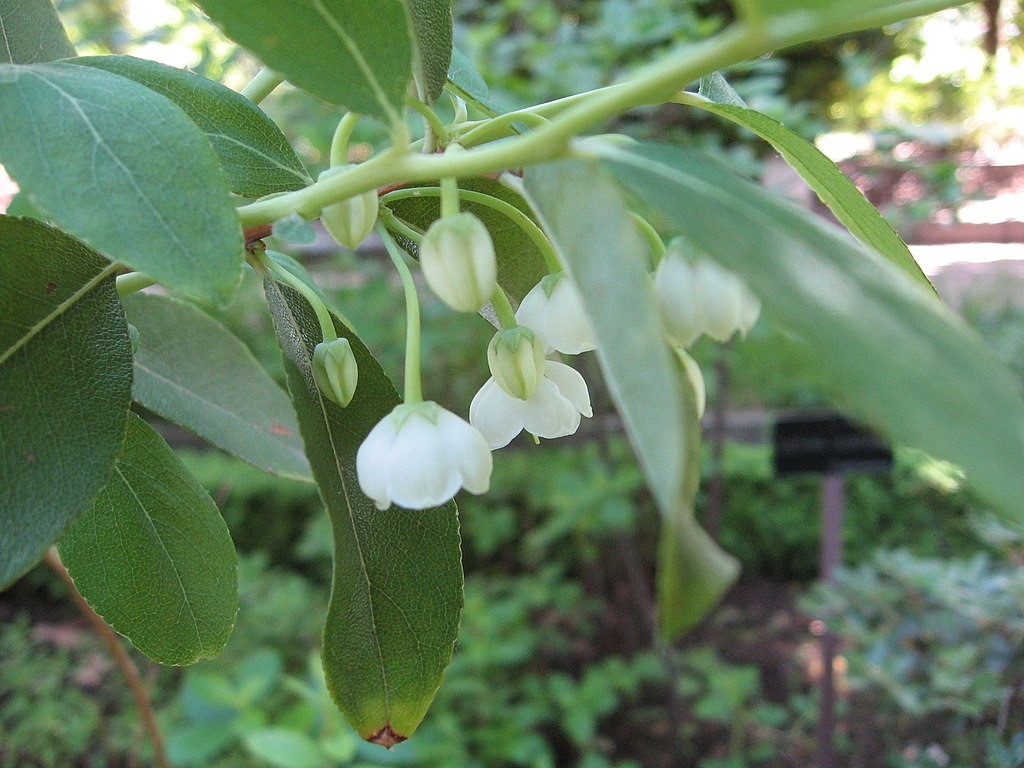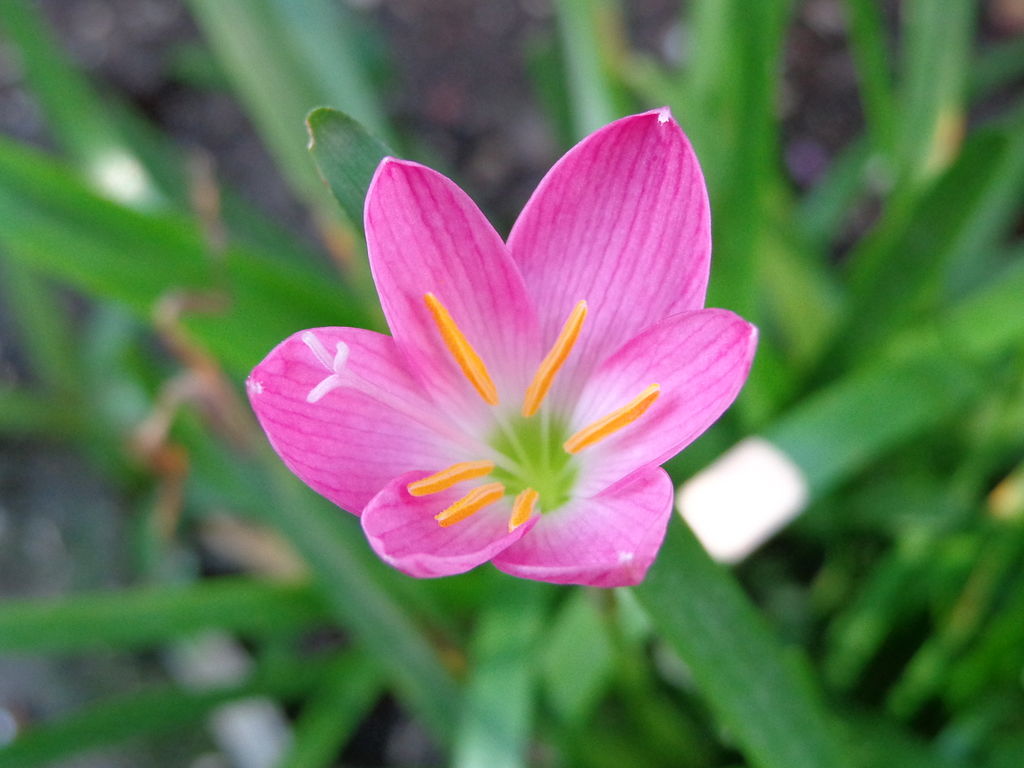
Here you can study for the exam. Look up keywords and learn definitions about all kind of subjects.
More subjects
Xylobium, abbreviated Xyl in horticultural trade, is a genus of plants in family Orchidaceae. It contains about 35 species native to tropical America. (Source: Wikipedia.org, CC BY-SA)
Xylosma /zaɪˈlɒzmə/ is a genus of flowering plants in the family Salicaceae. It contains around 100 species of evergreen shrubs and trees commonly known as brushhollies, xylosmas, or, more ambiguously, 'logwoods'. The generic name is derived from the Greek words ξύλον (xylon), meaning 'wood,' and ὀσμή (osmé), meaning 'smell,' referring to the fragrant wood of some of the species. The Takhtajan system places it in the family Flacourtiaceae, which is considered defunct by the Angiosperm Phylogeny Group. (Source: Wikipedia.org, CC BY-SA)
Xyris difformis, the bog yelloweyed grass, is a North American species of flowering plant in the yellow-eyed-grass family. It is native to the eastern and southern United States, eastern and central Canada, and Central America. Xyris difformis is a perennial herb up to 90 cm (3 feet) tall with grass-like leaves up to 50 cm (20 inches) long, and yellow flowers. (Source: Wikipedia.org, CC BY-SA)
Achillea millefolium, commonly known as yarrow (/ˈjæroʊ/) or common yarrow, is a flowering plant in the family Asteraceae. Other common names include old man's pepper, devil's nettle, sanguinary, milfoil, soldier's woundwort, and thousand seal. The plant is native to temperate regions of the Northern Hemisphere in Asia, Europe, and North America. It has been introduced as a feed for livestock in New Zealand and Australia. (Source: Wikipedia.org, CC BY-SA)
Lamium galeobdolon, commonly known as yellow archangel, artillery plant, aluminium plant, or yellow weasel-snout, is a widespread wildflower in Europe, and has been introduced elsewhere as a garden plant. It displays the zygomorphic flower morphology, opposite leaves, and square stems typical of the mint family, Lamiaceae. The flowers are soft yellow and borne in axial clusters, with a prominent 'hood' (the dorsal lobe of the corolla). It spreads easily and so has been commonly used as an ornamental ground cover. It can be invasive in places where it is not native and caution must be taken when planting in these areas. (Source: Wikipedia.org, CC BY-SA)
Fritillaria pudica, the yellow fritillary, is a small perennial plant found in the sagebrush country in the western United States (Idaho, Montana, Oregon, Washington, Wyoming, very northern California, Nevada, northwestern Colorado, North Dakota and Utah) and Canada (Alberta and British Columbia). It is a member of the lily family Liliaceae. Another common (but somewhat ambiguous) name is 'yellow bells', since it has a bell-shaped yellow flower. It may be found in dryish, loose soil; it is amongst the first plants to flower after the snow melts, but the flower does not last very long; as the petals age, they turn a brick-red colour and begin to curl outward. The flowers grow singly or in pairs on the stems, and the floral parts grow in multiples of threes. The species produces a small corm, which forms corms earning the genus the nickname 'riceroot'. During his historic journey, Meriwether Lewis collected a specimen while passing through Idaho in 1806. (Source: Wikipedia.org, CC BY-SA)
Xyris is a genus of flowering plants, the yelloweyed grasses, in the yellow-eyed-grass family. The genus counts over 250 species, widespread over much of the world, with the center of distribution in the Guianas. The leaves are mostly distichous, linear, flat, and thin or round with a conspicuous sheath at the base. They are arranged in a basal aggregation. The small, yellow flowers are borne on a spherical or cylindrical spike or head (inflorescence). Each flower grows from the axil of a leathery bract. The fruit is a nonfleshy, dehiscent capsule. In Xyris complanata, a single flower bud on the spike appears in the morning, and expands into a conspicuous flower during the afternoon hours. (Source: Wikipedia.org, CC BY-SA)
Zenobia, called honeycup, is a North American genus of shrubs in the family Ericaceae. Zenobia is a hairless shrub, sometimes with a waxy coating on the foliage. The leaves are elliptical or egg-shaped. The plant has numerous white flowers in flat-topped or elongated arrays, each flower has 5 separate sepals and 5 united petals, forming a bell-shaped corolla. Each flower can produce up to 200 egg-shaped seeds in a dry capsule. (Source: Wikipedia.org, CC BY-SA)
 © Wikimedia.org/A. Barra, CC BY-SA
© Wikimedia.org/A. Barra, CC BY-SA
Zephyranthes /ˌzɛfɪˈrænθiːz/ is a genus of temperate and tropical plants in the Amaryllis family, subfamily Amaryllidoideae, native to the Western Hemisphere and widely cultivated as ornamentals. Following the expansion of the genus in 2019, which now includes the genera Habranthus and Sprekelia, there are about 200 recognized species, as well as numerous hybrids and cultivars. Common names for species in this genus include fairy lily, rainflower, zephyr lily, magic lily, Atamasco lily, and rain lily. (Source: Wikipedia.org, CC BY-SA)
 © Wikimedia.org/Vidtra Cholastica Lamban, CC BY-SA
© Wikimedia.org/Vidtra Cholastica Lamban, CC BY-SA
Zinnia elegans (syn. Zinnia violacea) known as youth-and-age, common zinnia or elegant zinnia, is an annual flowering plant in the family Asteraceae. It is native to Mexico but grown as an ornamental in many places and naturalised in several places, including scattered locations in South and Central America, the West Indies, the United States, Australia, and Italy. The uncultivated plant grows to about 15 cm (5.27 in) in height. It has solitary flower heads about 5 cm (2 in) across. The purple ray florets surround black and yellow discs. The lanceolate leaves are opposite the flower heads. Flowering occurs during the summer months. (Source: Wikipedia.org, CC BY-SA)

Time for recess! Post a comment, ask a question or write a review. Feel free to let us know what you think!
look at the sign on the road to avoid accidents and horrible driving conditions
I received a 300$ ticket because I passed a police control of other cars/drivers on the right lane of a highway (the control was on the hard shoulder of the highway). Is it really true, that you have to change the lane in such cases? Thanks!
I am an American living in Italy. The Italian Drivers License theory test is the hardest test I have ever studied for and I am in my 70s have multiple degrees, multiple professional certifications. Have to take the Italian Drivers Theory test in Italian. No english. So many rules. More signs in small medieval Italian town I live in then in major US cities I have lived in. No Italian license no driving. No buying or renting a car. Test here was good, clean. Lots of tricky questions on many practice and real official tests. Thanks
Most problems are a result of higher than safe driving speeds. Please just slow down and be patient.
Question 121: Poor translation: Vehicles with polluted fluids prohibited Should be translated as: Vehicles with dangerous liquids prohibited
Question 83: Poor translation: Vehicles with polluted fluids prohibited Should be translated as: Vehicles with dangerous liquids prohibited
Want even more practice? Visit similar websites offering realistic practice driving knowledge tests. Visit us to see what sets our tests apart! https://dkttest.com/capital-territory/
Cool tool! And fun to check whether I remember the rules :) Two things I noticed: Warning for a crossroad side roads on the left and right. While technically that might be the correct translation, this sign tells you, that you are on the main road and have the right of way for the next crossroad and only the next crossroad. Usually (if no sign specifies otherwise) you have to give way to drivers coming from the right at every intersection, which can get a bit annoying in communal areas, so seeing this sign feels less like a warning and more like relief :). A Fahrradstraße is not a lane for cyclists but a street for cyclists, meaning the (whole!) street is intended predominantly for cyclists, who are then allowed to ride next to each other. Cars are allowed to drive there (unless another sign prohibits such), but have to adjust their speed to the cyclists. I believe they are not allowed to pass at all, even if the oncoming lane is empty.
More community